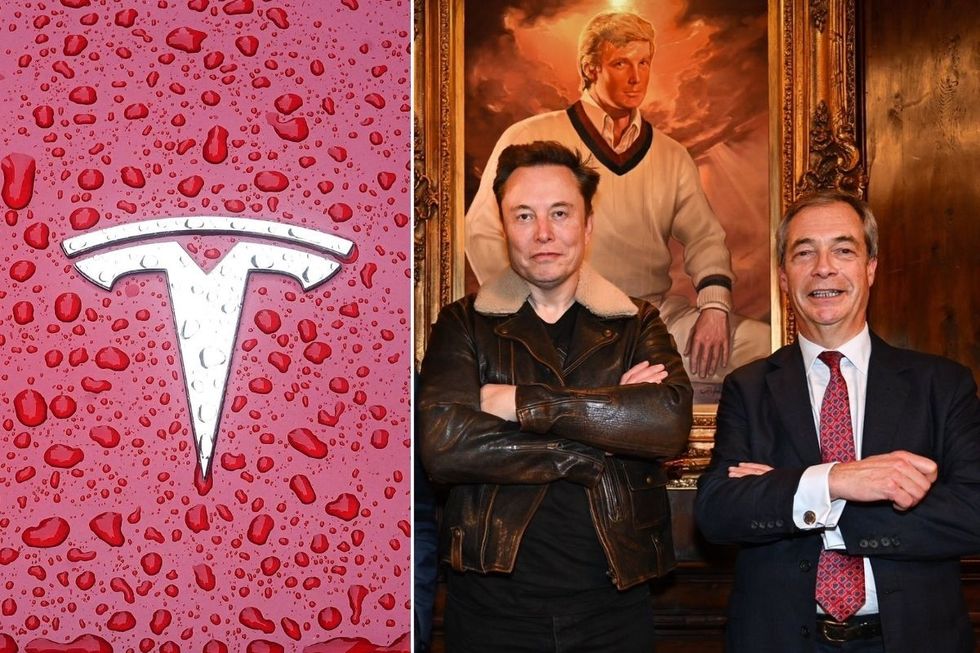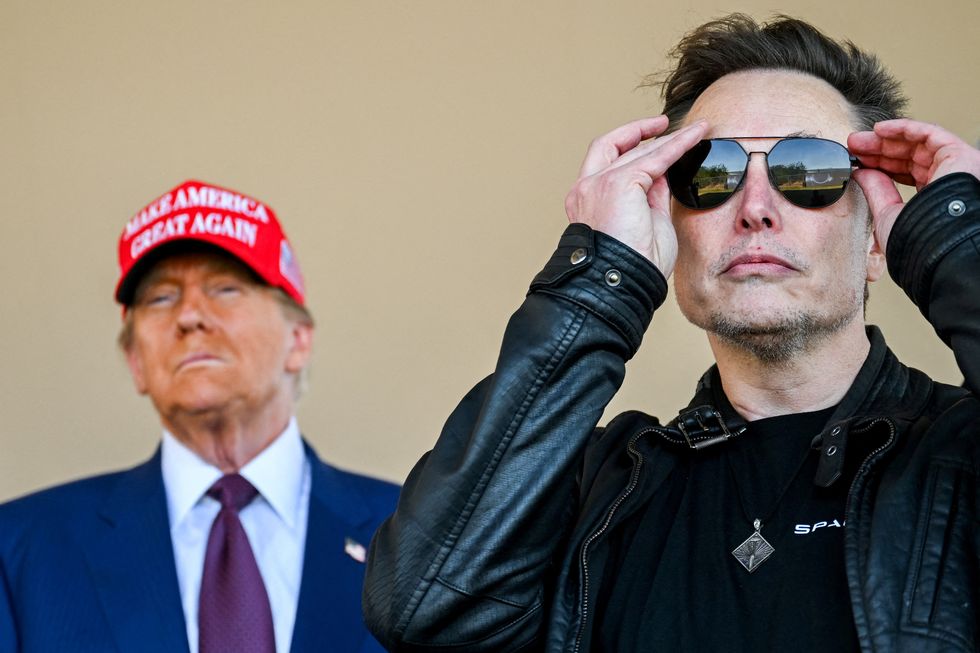Tesla sales fall as drivers put off by Elon Musk’s support for Reform UK, Nigel Farage and Donald Trump
Drivers are turning their backs on Tesla electric vehicles as a result of his recent political involvement and friendship with Reform UK leader Nigel Farage and US President-elect Donald Trump, according to new data.
Fresh research from Jato Dynamics shows that sales of new Tesla vehicles in Europe have dropped by 40 per cent compared to last year.
In November, sales in the European Union fell to 18,756, a significant fall compared to the 31,810 models sold a year prior.
The data showed that only three brands saw a poorer performance than Tesla over the period, namely Smart, Fiat and Chrysler.
Do you have a story you’d like to share? Get in touch by emailing motoring@gbnews.uk

Between January and November this year, Tesla sales are down by 15 per cent compared to 2023, with some experts poining to CEO Elon Musk’s controversial decisions over the last 12 months.
Felipe Munoz, an automotive analyst at Jato, said: “I would not blame this all on tariffs. Not all the cars sold by Tesla in Europe are Chinese-made.
“Musk going into politics has had an effect, but I don’t think it will stay for long.
“By contrast, the product’s age can have an impact. The Model Y is aged now and it is waiting for the updated version next year. You usually see big drops in car sales when this happens.”
Prior to the Presidential election in November, Elon Musk has pledged to support Republican candidate Donald Trump, with many suggesting, it could lead to favourable business deals for Tesla, SpaceX and X, formerly known as Twitter.
Musk had previously voted for the Democratic Party, but has since used his social media platform and his ever-growing influence to focus on immigration policies and the declining birth rate.
He has also commented on politics around the world, including backing Reform UK, slamming Keir Starmer’s Labour and praising right-wing President Javier Milei in Argentina.
More recently, he has thrown his support behind Alternative for Germany (AfD). The political group, which has seen a surge in support this year, remains a proscribed “suspected right-wing extremist organisation”.
Earlier this year, a survey found that 33 per cent of motorists were less likely to buy a Tesla because of its billionaire owner.
The survey, from Carmoola, found that 45 per cent of current Tesla owners were considering selling their vehicles as a result of his political activities.
Some also suggested that they now had a negative perception of Tesla because of Elon Musk, despite its goal to make more affordable electric vehicles for consumers.
In particular, the under-35 age group seem more likely to buy a Tesla electric vehicle because of his influence on the brand, while 36 per cent of women said they would no longer consider a Tesla.
LATEST DEVELOPMENTS:
- Iconic London black cabs could go extinct and disappear from roads ‘by 2040’ – ‘Taken for granted!’
- UK to meet electric vehicle mandate rules despite being blamed for job losses at Vauxhall’s Luton plant
- Honda and Nissan unveil major plans to merge amid ‘dramatic changes’ despite ‘panic mode’ fears

Aidan Rushby, founder and CEO of Carmoola, said: “With Elon Musk’s recent actions and political stance being made more and more public, we thought it would be interesting to see if this has swayed Brits opinion on his car brand.
“It’s clear that Musk’s link with Tesla has swayed people both towards and away from the car giant.”

